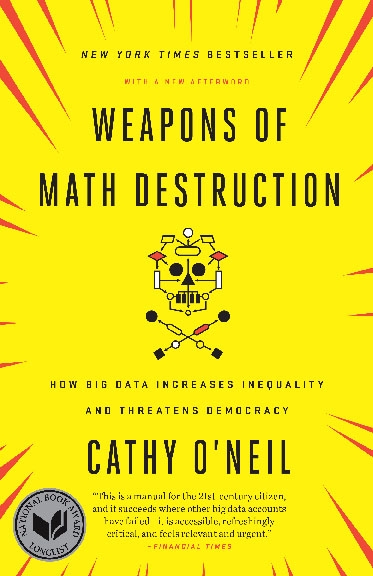
You can buy the book by visiting here.
First-Year Experience provided this opportunity with the help of the Book Selection Committee and faculty and staff across the university.
NATIONAL BOOK AWARD LONGLIST • NAMED ONE OF THE BEST BOOKS OF THE YEAR BY The New York Times Book Review • The Boston Globe • Wired • Fortune • Kirkus Reviews • The Guardian • Nature • On Point
We live in the age of the algorithm. Increasingly, the decisions that affect our lives—where we go to school, whether we can get a job or a loan, how much we pay for health insurance—are being made not by humans, but by machines. In theory, this should lead to greater fairness: Everyone is judged according to the same rules.
But as mathematician and data scientist Cathy O’Neil reveals, the mathematical models being used today are unregulated and uncontestable, even when they’re wrong. Most troubling, they reinforce discrimination—propping up the lucky, punishing the downtrodden, and undermining our democracy in the process. Welcome to the dark side of Big Data.SEE LESS
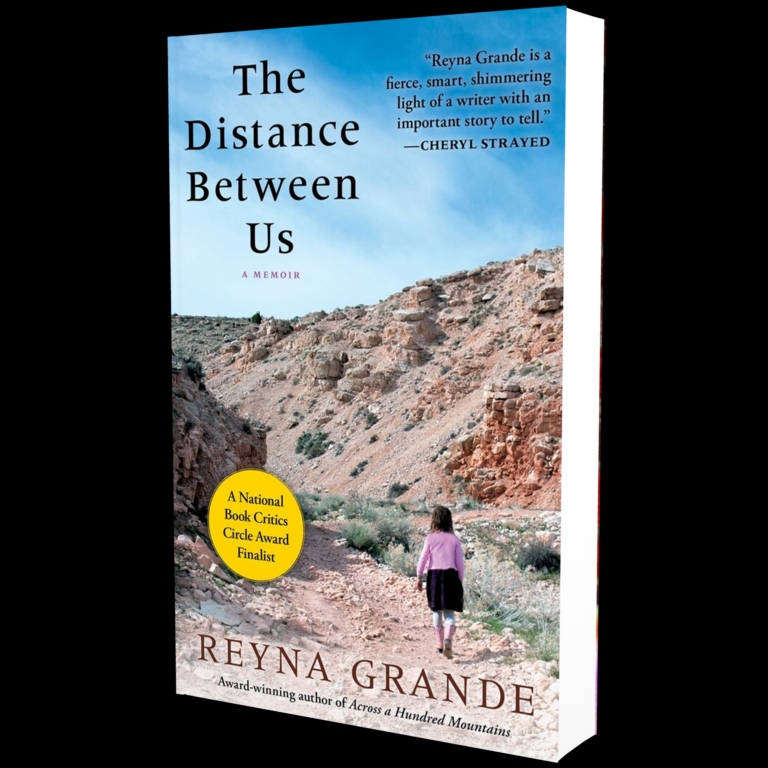
From award-winning author, Reyna Grande, an eye-opening memoir about life before and after illegally immigrating from Mexico to the United States.
Born in Mexico and raised by her grandparents after her parents left to find work in the U.S., Reyna entered the U.S. as an undocumented immigrant to live with her father at nine years old. Filled with hope, she quickly realizes that life in America is far from perfect. Her father isn’t the man she dreamed about all those years in Mexico. His big dreams for his children are what get them across the border, but his alcoholism and rage undermine all his hard work and good intentions. Reyna finds solace from a violent home in books and writing, inspired by the Latina voices she reads. After an explosive altercation, Reyna breaks away, becoming the first person in her family to obtain a higher education, earning a B.A. and then an M.F.A. in Creative Writing.
At a time when immigration politics are at a boiling point in America, Reyna Grande is an important public voice for Mexican Americans and immigrants of every origin. The Distance Between Us has the power to change minds and hearts.
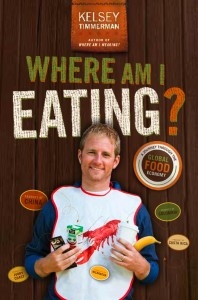
You can find more information by visiting Author Kelsey Timmerman's website, Where Am I Wearing, and to buy the book, visit Barnes and Noble, Amazon, Books-A-Million, and IndieBound.
A deeply human-centered perspective on the origins of America's food.
Where Am I Eating? bridges the gap between global food producers and the American consumer, providing an insightful look at how our eating habits affect farmers and fishermen around the world.
Follow Kelsey on his global quest to meet the workers that nurture, harvest, and hunt our food as he works alongside them—loading lobster diving boats in Nicaragua, harvesting bananas in Costa Rica, lugging cocoa beans in Ivory Coast with a modern-day slave, picking coffee beans in Colombia and hauling tomatoes in Indiana.
Imports account for eighty-six percent of America's seafood, fifty percent of its fresh fruit, and eighteen percent of its fresh vegetables. Where Am I Eating? examines the effects of this reliance on those who supply the global food economy.
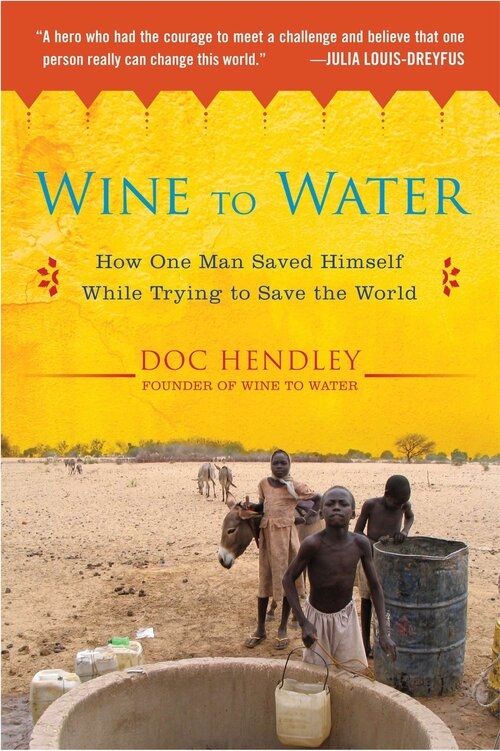
You can find more information by visiting Author Doc Hendley's website, Wine to Water, and to buy the book.
First-Year Experience provided this opportunity with the help of the Book Selection Committee and faculty and staff across the university.
The captivating story of an ordinary bartender turned humanitarian who’s changing the world through clean water.
Doc Hendley never set out to be a hero. A small-town bartender, Doc loved his Harley, music, and booze. Then he learned about the world’s water crisis and decided to help by hosting fundraisers. But he wanted to do more and soon found himself traveling to one of the world’s most dangerous hot spots: Darfur, Sudan.
Doc was immediately cast into a crisis zone. The Sudanese government was wiping out entire villages through horrific state-sponsored genocide—and one of the chief weapons was water. By dumping corpses in water sources and shooting up water bladders, Janjaweed terrorists doomed hundreds of thousands of citizens to dehydration, disease, and death.
At just twenty-five years old, Doc was inexperienced, untrained, and in constant danger—but he stepped up to save lives. Alternatively, begging international organizations for funding and dodging trigger-happy Janjaweed, Doc began drilling and repairing wells, bringing drinking water to those who desperately needed it. Wine to Water is his story about braving tribal warfare in far-flung regions of the world and an inspirational tale of how one ordinary person can make a difference.
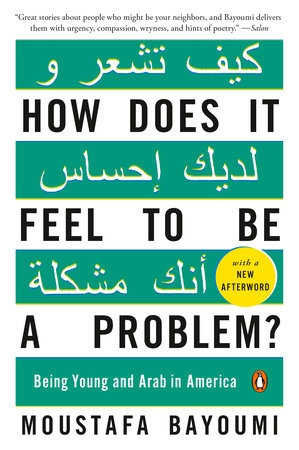
First-Year Experience provided this opportunity with the help of the Book Selection Committee, Education Abroad, NKU Barnes & Noble, Dean of Students, New Student Orientation and Parent Programs, Steely Library, Scripps Howard Center for Civic Engagement, and Learning Assitance Programs.
An eye-opening look at how young Arab- and Muslim-Americans are forging lives for themselves in a country that often mistakes them for the enemy
Just over a century ago , W.E.B. Du Bois posed a probing question in his classic The Souls of Black Folk: How does it feel to be a problem? Now, Moustafa Bayoumi asks the same about America’s new “problem”-Arab- and Muslim-Americans. Bayoumi takes readers into the lives of seven twenty-somethings living in Brooklyn, home to the largest Arab-American population in the United States. He moves beyond stereotypes and clichés to reveal their often unseen struggles, from being subjected to government surveillance to the indignities of workplace discrimination. Through it all, these young men and women persevere through triumphs and setbacks as they help weave the tapestry of a new society that is, at its heart, purely American.
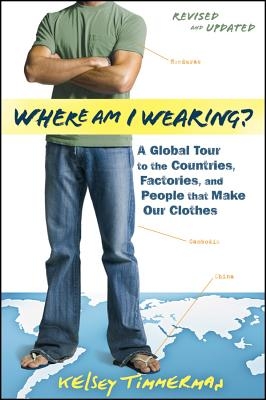
You can find more information by visiting Author Kelsey Timmerman's website, Where Am I Wearing, and to buy the book, visit Barnes and Noble, Amazon, and IndieBound.
First-Year Experience provided this opportunity with the help of NKU Barnes & Noble, Department of English, Learning Assitance Programs, College of Arts and Sciences, The Office of New Student Orientation and Parent Programs, Scripps Howard Center for Civic Engagement, Steely Library, and US Bank NKU Branch.
A journalist travels the world to trace the origins of our clothes.
When journalist and traveler Kelsey Timmerman wanted to know where his clothes came from and who made them, he began a journey that would take him from Honduras to Bangladesh to Cambodia to China and back again. Where Am I Wearing? intimately describes the connection between impoverished garment workers' standards of living and the all-American material lifestyle. By introducing readers to the human element of globalization—the factory workers, their names, their families, and their way of life—Where Am I Wearing bridges the gap between global producers and consumers.
Enlightening and thought-provoking at once, Where Am I Wearing? puts a human face on globalization.
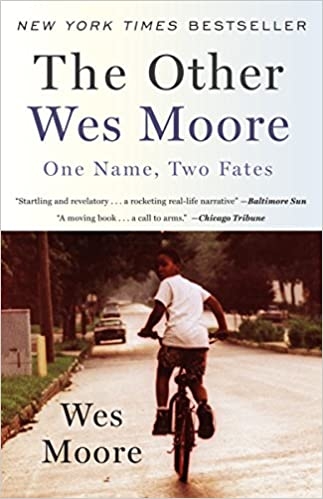
First-Year Experience provided this opportunity with the help of NKU Barnes and Noble, Friends of Steely Library, Department of English, Scripps Howard Center for Civic Engagement, Steely Library, and US Bank NKU.
The chilling truth is that his story could have been mine. The tragedy is that my story could have been his.
In December 2000, the Baltimore Sun ran a small piece about Wes Moore, a local student who had just received a Rhodes Scholarship. The same paper also ran a series of articles about four young men who had allegedly killed a police officer in a spectacularly botched armed robbery. The police were still hunting for two of the suspects who had gone on the lam, a pair of brothers. One was named Wes Moore.
Wes just couldn’t shake off the unsettling coincidence or the inkling that the two shared much more than space in the same newspaper. After following the story of the robbery, the manhunt, and the trial to its conclusion, he wrote a letter to the other Wes, now a convicted murderer serving a life sentence without the possibility of parole. His letter tentatively asked the questions that had been haunting him: Who are you? How did this happen?
That letter led to a correspondence and relationship that have lasted for several years. Over dozens of letters and prison visits, Wes discovered that the other Wes had had a life not unlike his own: Both had had difficult childhoods, both were fatherless; they’d hung out on similar corners with similar crews, and both had run into trouble with the police. At each stage of their young lives they had come across similar moments of decision, yet their choices would lead them to astonishingly different destinies.
Told in alternating dramatic narratives that take readers from heart-wrenching losses to moments of surprising redemption, The Other Wes Moore tells the story of a generation of boys trying to find their way in a hostile world.
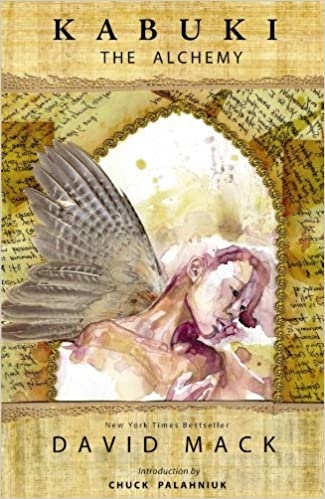
Kabuki is a series about transformation.
It is a graphic novel set slightly in the future of Japan. The main character is from a group of eight female assassins called The Noh. The group is managed by the government and completes missions to instill fear. Throughout the work, a multi-layered conspiracy unfolds over the graphic novel. A chance at a new life can be hard to begin, but the transformation never stops.
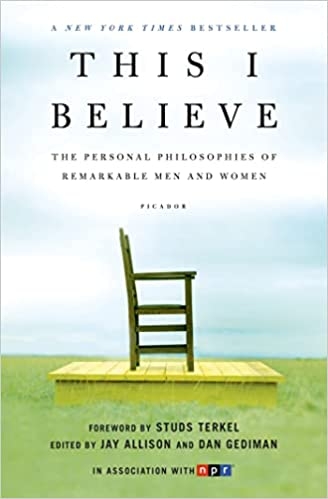
You can find more information by visiting Author Dan Gediman's website, This I Believe, and to buy the book, visit Amazon.
First-Year Experience provided this opportunity with the help of the Alumni Affairs, Campbell County Public Libraries, Department of English, Student Affairs, Friends of Steely Library, Honors Program, Learning Assistance Programs, NKU Presidential Ambassadors, Steely Library, Student Union Administration, and WNKU.
The result is a stirring and provocative trip inside the minds and hearts of a diverse group of people whose beliefs―and the incredibly varied ways in which they choose to express them―reveal the American spirit at its best.
Based on the NPR series of the same name, This I Believe features eighty Americans―from the famous to the unknown―completing the thought that the book's title begins. Each piece compels readers to rethink how they have arrived at their own personal beliefs and the extent to which they share them with others.
Featuring many renowned contributors―including Isabel Allende, Colin Powell, Gloria Steinem, William F. Buckley Jr., Penn Jillette, Bill Gates, and John Updike―the collection also contains essays by a Brooklyn lawyer; a part-time hospital clerk in Rehoboth, Massachusetts; a woman who sells yellow pages advertising in Fort Worth, Texas; and a man who serves on Rhode Island's parole board.
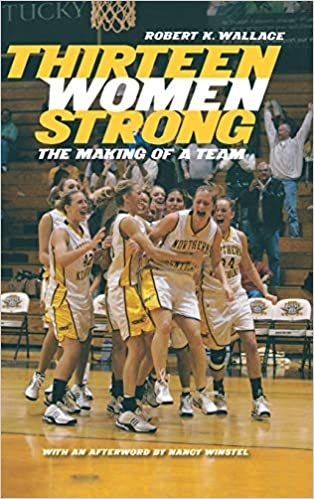
You can buy the book at Amazon.
First-Year Experience provided this opportunity with the help of The Office of the President, Office of the Vice Provost, Department of Athletics, Department of English, Learning Assistance Programs, Division of Student Affairs, Steely Library, and NKU Presidential Ambassadors.
Wallace documents the story of how thirteen women faced high expectations and difficult trials to come together as a team, their growth culminating in the 2007–08 national championship.
Thirteen Women Strong: The Making of a Team is a chronicle of the 2006–2007 season of twelve remarkable student-athletes and their legendary coach. Wallace was granted unprecedented access to the team. Sitting in on closed meetings and practice sessions, he follows the players through grueling training drills, intensely close games, exhilarating wins, and anguished losses.
During the 2005–06 season, a squad of NKU women with no seniors achieved unanticipated success, earning a 27–5 record that led to a Great Lakes Valley Conference championship. The entire team returned to expectations of even greater success the following season, but injuries and other major obstacles plagued their 2006–07 season. After a string of tough losses, the women mounted a comeback to earn a 21–8 record and reach the NCAA Division II Tournament once again. The team’s story is one of loss, triumph, and personal growth.
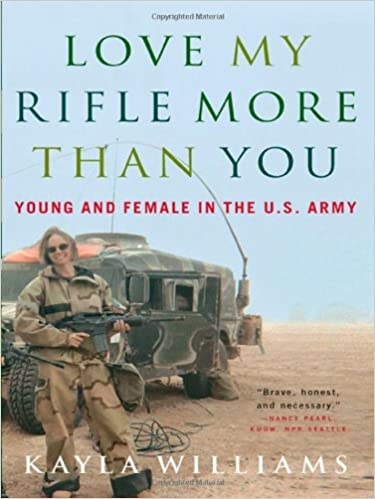
You can buy the book on Amazon.
First-Year Experience provided this opportunity with the help of the Office of the Vice Provost, College of Arts and Sciences, College of Informatics, Military History Lecture Series, Department of History and Geography, Women and Gender Studies, Scripps-Howard Center for Civic Engagement and Non-Profit Development, Steely Library, Friends of Steely Library, and NKU Presidential Ambassadors.
Kayla Williams is one of the 15 percent of the U.S. Army that is female, and she is a great storyteller. With a voice that is “funny, frank and full of gritty details” (New York Daily News), she tells of enlisting under Clinton; of learning Arabic; of the sense of duty that fractured her relationships; of being surrounded by bravery and bigotry, sexism and fear; of seeing 9/11 on Al-Jazeera; and of knowing she would be going to war.
With a passion that makes her memoir “nearly impossible to put down” (Buffalo News) Williams shares the powerful gamut of her experiences in Iraq, from caring for a wounded civilian to aiming a rifle at a child. Angry at the bureaucracy and the conflicting messages of today’s military, Williams offers us “a raw, unadulterated look at war” (San Antonio Express News) and at the U.S. Army. And she gives us a woman’s story of empowerment and self-discovery.
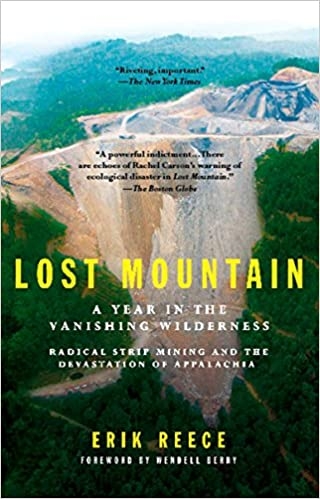
First-Year Experience provided this opportunity with the help of the Office of Student Success, College of Arts and Sciences, College of Informatics, Steely Library, Friends of Steely Library, and NKU Presidential Ambassadors.
A new form of strip mining has caused a state of emergency for the Appalachian wilderness and the communities that depend on it-a crisis compounded by issues of government neglect, corporate hubris, and class conflict. In this powerful call to arms, Erik Reece chronicles the year he spent witnessing the systematic decimation of a single mountain and offers a landmark defense of a national treasure threatened with extinction.
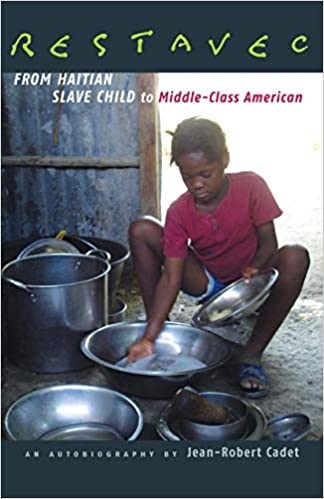
First-Year Experience provided this opportunity with the help of the NKU Presidential Ambassadors, College of Arts and Sciences, College of Informatics, Friends of Steely Library, and Steely Library.
African slaves in Haiti emancipated themselves from French rule in 1804 and created the first independent black republic in the Western Hemisphere. But they reinstituted slavery for the most vulnerable members of Haitian society―the children of the poor―by using them as unpaid servants to the wealthy. These children were―and still are―restavecs, a French term whose literal meaning of "staying with" disguises the unremitting labor, abuse, and denial of education that characterizes the children’s lives. In this memoir, Jean-Robert Cadet recounts the harrowing story of his youth as a restavec, as well as his inspiring climb to middle-class American life. He vividly describes what it was like to be an unwanted illegitimate child "staying with" a well-to-do family whose physical and emotional abuse was sanctioned by Haitian society. He also details his subsequent life in the United States, where, despite American racism, he put himself through college and found success in the Army, in business, and finally in teaching.
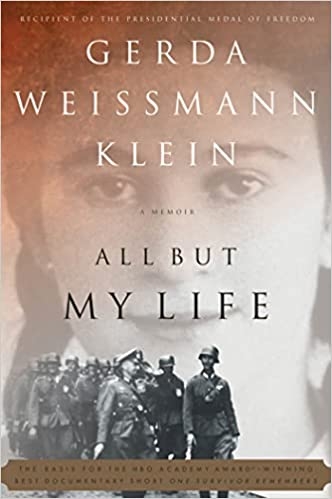
You can buy the book on Amazon.
First-Year Experience provided this opportunity with the help of the LKC Foundation, Office of the Provost, The Invest in Success Fund, The Department of History And Geography, The Military History Lecture Series, University Programs, The Friends of Steely Library, Steely Library, and The NKU Presidential Ambassadors.
All But My Life is the unforgettable story of Gerda Weissmann Klein's six-year ordeal as a victim of Nazi cruelty. From her comfortable home in Bielitz (present-day Bielsko) in Poland to her miraculous survival and her liberation by American troops--including the man who was to become her husband--in Volary, Czechoslovakia, in 1945, Gerda takes the reader on a terrifying journey.
Gerda's serene and idyllic childhood is shattered when Nazis march into Poland on September 3, 1939. Although the Weissmanns were permitted to live for a while in the basement of their home, they were eventually separated and sent to German labor camps. Over the next few years Gerda experienced the slow, inexorable stripping away of "all but her life." By the end of the war she had lost her parents, brother, home, possessions, and community; even the dear friends she made in the labor camps, with whom she had shared so many hardships, were dead.
Despite her horrifying experiences, Klein conveys great strength of spirit and faith in humanity. In the darkness of the camps, Gerda and her young friends manage to create a community of friendship and love. Although stripped of the essence of life, they were able to survive the barbarity of their captors. Gerda's beautifully written story gives an invaluable message to everyone. It introduces them to last century's terrible history of devastation and prejudice, yet offers them hope that the effects of hatred can be overcome.
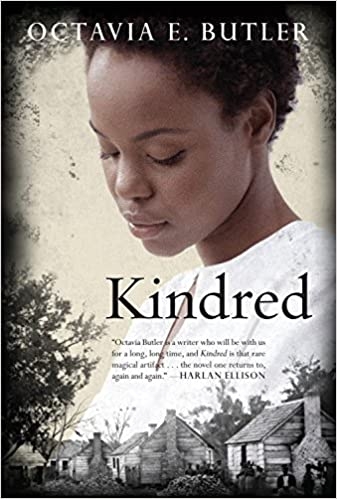
First-Year Experience provided this opportunity with the help of University Programs and the Invest in Success Fund.
Octavia skillfully juxtaposes the serious issues of slavery, human rights, and racial prejudice with an exciting science-fiction, romance, and historical adventure.
Butler’s most celebrated, critically acclaimed work tells the story of Dana, a young black woman who is suddenly and inexplicably transported from her home in 1970s California to the pre–Civil War South. As she time-travels between worlds, one in which she is a free woman and one where she is part of her own complicated familial history on a southern plantation, she becomes frighteningly entangled in the lives of Rufus, a conflicted white slaveholder and one of Dana’s own ancestors, and the many people who are enslaved by him.
During numerous such time-defying episodes with the same young man, she realizes the challenge she’s been given: to protect this young slaveholder until he can father her own great-grandmother.
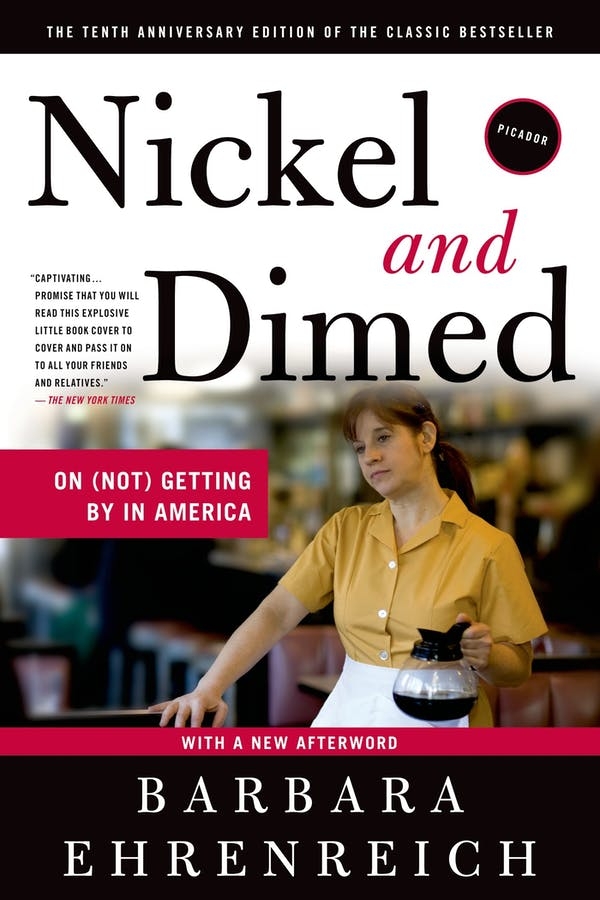
First-Year Experience provided this opportunity with the help of Thomson Learning, Alumni and Friends of NKU, the Division of Student Affairs, the Invest in Success Fund, and the Office of the Vice Provost.
In this now classic work, Barbara Ehrenreich, our sharpest and most original social critic, goes "undercover" as an unskilled worker to reveal the dark side of American prosperity.
Millions of Americans work full time, year round, for poverty-level wages. In 1998, Barbara Ehrenreich decided to join them. She was inspired in part by the rhetoric surrounding welfare reform, which promised that a job—any job—can be the ticket to a better life. But how does anyone survive, let alone prosper, on $6 an hour?
To find out, Ehrenreich left her home, took the cheapest lodgings she could find, and accepted whatever jobs she was offered. Moving from Florida to Maine to Minnesota, she worked as a waitress, a hotel maid, a cleaning woman, a nursing-home aide, and a Wal-Mart sales clerk. She lived in trailer parks and crumbling residential motels. Very quickly, she discovered that no job is truly "unskilled," that even the lowliest occupations require exhausting mental and muscular effort. She also learned that one job is not enough; you need at least two if you int to live indoors.
Nickel and Dimed reveals low-rent America in all its tenacity, anxiety, and surprising generosity—a land of Big Boxes, fast food, and a thousand desperate stratagems for survival. Read it for the smoldering clarity of Ehrenreich's perspective and for a rare view of how "prosperity" looks from the bottom. You will never see anything—from a motel bathroom to a restaurant meal—in quite the same way again.
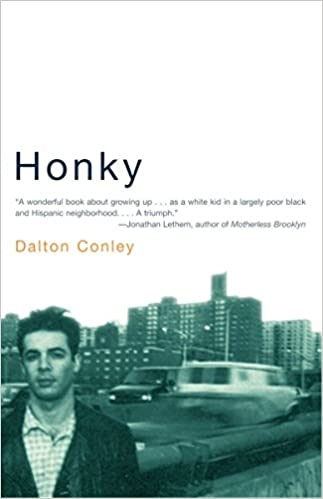
You can buy the book at Amazon.
First-Year Experience provided this opportunity with the help of the Alumni and Friends of NKU, the Division of Student Affairs, the Invest in Success Fund, and the Office of the Vice Provost.
As recalled in Honky, Dalton Conley’s childhood has all of the classic elements of growing up in America. But the fact that he was one of the few white boys in a mostly black and Puerto Rican neighborhood on Manhattan’s Lower East Side makes Dalton’s childhood unique.
At the age of three, he couldn’t understand why the infant daughter of the black separatists next door couldn’t be his sister, so he kidnapped her. By the time he was a teenager, he realized that not even a parent’s devotion could protect his best friend from a stray bullet. Years after the privilege of being white and middle class allowed Conley to leave the projects, his entertaining memoir allows us to see how race and class impact us all. Perfectly pitched and daringly original, Honky is that rare book that entertains even as it informs.
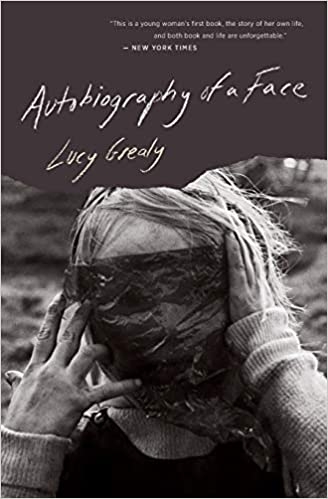
You can buy the book on Amazon.
First-Year Experience provided this opportunity with the help of the Division of Student Affairs and Enrollment Management, and the Office of the Vice Provost.
In this celebrated memoir and exploration of identity, cancer transforms the author’s face, childhood, and the rest of her life.
At age nine, Lucy Grealy was diagnosed with a potentially terminal cancer. When she returned to school with a third of her jaw removed, she faced the cruel taunts of classmates. It took her twenty years of living with a distorted self-image and more than thirty years of reconstructive procedures before she could come to terms with her appearance. In this lyrical and strikingly candid memoir, Grealy tells her story of great suffering and remarkable strength without sentimentality and with considerable wit. She captures what it is like as a child and a young adult to be torn between two warring impulses: to feel that more than anything else we want to be loved for who we are, while wishing desperately and secretly to be perfect.
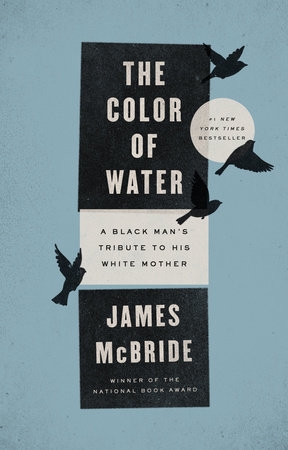
First-Year Experience provided this opportunity with the help of Firstar Bank, College of Arts and Sciences, Office of Enrollment Management, and Activities Planning Board.
Who is Ruth McBride Jordan? A self-declared “light-skinned” woman evasive about her ethnicity, yet steadfast in her love for her twelve black children.
James McBride, journalist, musician, and son, explores his mother’s past, as well as his own upbringing and heritage, in a poignant and powerful debut, The Color Of Water: A Black Man’s Tribute to His White Mother. In The Color of Water, McBride retraces his mother’s footsteps and, through her searing and spirited voice, recreates her remarkable story.
At seventeen, after fleeing Virginia and settling in New York City, Ruth married a black minister and founded the all-black New Brown Memorial Baptist Church in her Red Hook living room. “God is the color of water,” Ruth McBride taught her children, firmly convinced that life’s blessings and life’s values transcend race. Twice widowed, and continually confronting overwhelming adversity and racism, Ruth’s determination, drive and discipline saw her dozen children through college—and most through graduate school.
Interspersed throughout his mother’s compelling narrative, McBride shares candid recollections of his own experiences as a mixed-race child of poverty, his flirtations with drugs and violence, and his eventual self-realization and professional success. The Color of Water touches readers of all colors as a vivid portrait of growing up, a haunting meditation on race and identity, and a lyrical valentine to a mother from her son.